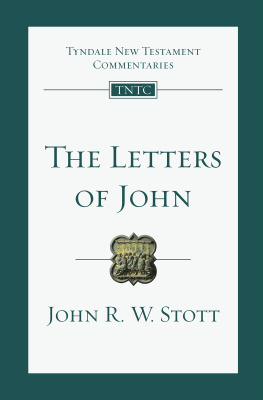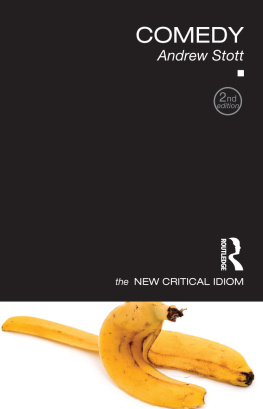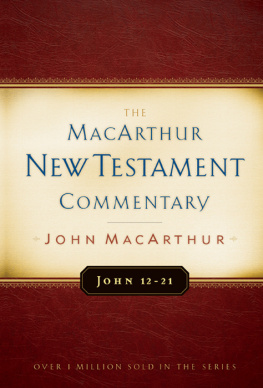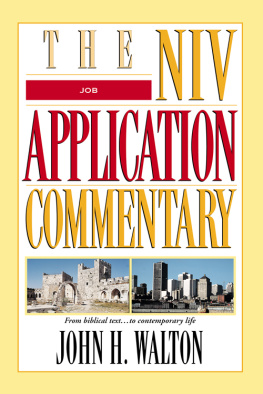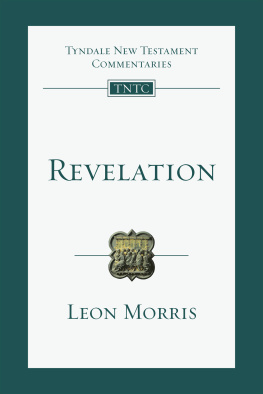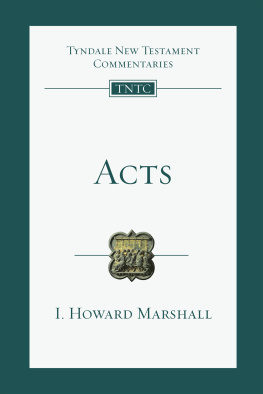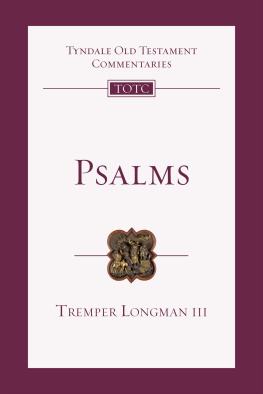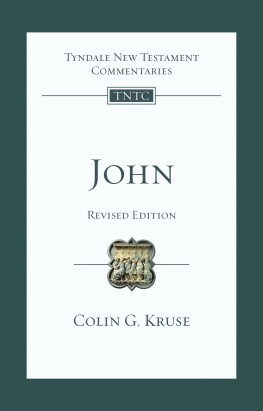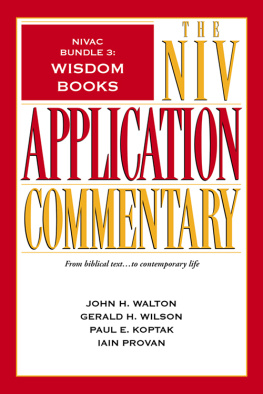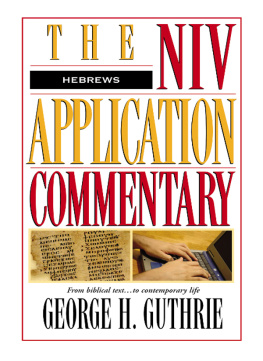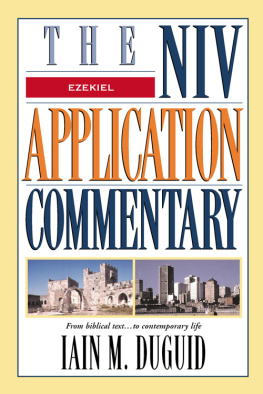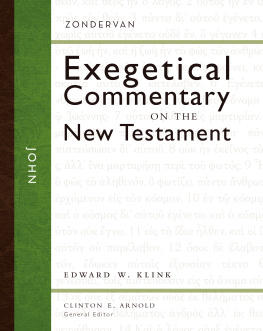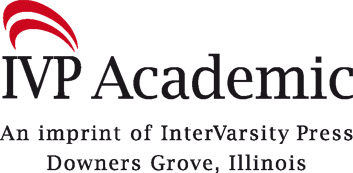TYNDALE NEW TESTAMENT
COMMENTARIES
VOLUME 19
THE LETTERS OF JOHN
Dedicated to
another chosen lady and her children,
whom I love in the truth,
the congregation of
All Saints Church, Langham Place,
London
All John Stotts royalties from this book have been irrevocably assigned to Langham Literature (formerly the Evangelical Literature Trust). Langham Literature is a programme of the Langham Partnership International (LPI), founded by John Stott. Chris Wright is the International Ministries Director.
Langham Literature distributes evangelical books to pastors, theological students and seminary libraries in the Majority World, and fosters the writing and publishing of Christian literature in many regional languages. For further information on Langham Literature, and the other programmes of LPI, visit the website at www.langhampartnership.org.
In the USA, the national member of the Langham Partnership International is John Stott Ministries. Visit the JSM website at www.johnstott.org.
TYNDALE NEW TESTAMENT
COMMENTARIES
VOLUME 19
GENERAL EDITOR: LEON MORRIS
THE LETTERS OF JOHN
AN INTRODUCTION AND COMMENTARY
JOHN R. W. STOTT
Inter Varsity Press, USA
P.O. Box 1400, Downers Grove, IL 60515-1426, USA
World Wide Web:www.ivpress.com
Email:
John R. W. Stott 1964, 1988
All rights reserved. No part of this publication may be reproduced, stored in a retrieval system or transmitted in any form or by any means, electronic, mechanical, photocopying, recording or otherwise, without the prior permission of InterVarsity Press.
InterVarsity Press, USA, is the book-publishing division of InterVarsity Christian Fellowship/USAand a member movement of the International Fellowship of Evangelical Students.
All Scripture quotations, unless otherwise indicated, are taken from the Holy Bible, New International Version. NIV. Copyright 1973, 1978, 1984 by International Bible Society. Used by permission of Zondervan Publishing House. Distributed in the U.K. by permission of Hodder and Stoughton Ltd. All rights reserved. NIV is a registered trademark of International Bible Society. UK trademark number 1448790.
First published 1964
ISBN 978-0-8308-9826-8 (digital)
ISBN 978-0-8308-4249-0 (print)
This digital document has been produced by Nord Compo.
General preface
The original Tyndale Commentaries aimed at providing help for the general reader of the Bible. They concentrated on the meaning of the text without going into scholarly technicalities. They sought to avoid the extremes of being unduly technical or unhelpfully brief. Most who have used the books agree that there has been a fair measure of success in reaching that aim.
Times, however, change. A series that has served so well for so long is perhaps not quite as relevant as when it was first launched. New knowledge has come to light. The discussion of critical questions has moved on. Bible-reading habits have changed. When the original series was commenced it could be presumed that most readers used the Authorized Version and one could make ones comments accordingly, but this situation no longer obtains.
The decision to revise and update the whole series was not reached lightly, but in the end it was thought that this is what is required in the present situation. There are new needs, and they will be better served by new books or by a thorough updating of the old books. The aims of the original series remain. The new commentaries are neither minuscule nor unduly long. They are exegetical rather than homiletic. They do not discuss all the critical questions, but none is written without an awareness of the problems that engage the attention of New Testament scholars. Where it is felt that formal consideration should be given to such questions, they are discussed in the Introduction and sometimes in Additional notes.
But the main thrust of these commentaries is not critical. These books are written to help the non-technical reader to understand the Bible better. They do not presume a knowledge of Greek, and all Greek words discussed are transliterated; but the authors have the Greek text before them and their comments are made on the basis of the originals. The authors are free to choose their own modern translation, but are asked to bear in mind the variety of translations in current use.
The new series of Tyndale Commentaries goes forth, as the former series did, in the hope that God will graciously use these books to help the general reader to understand as fully and clearly as possible the meaning of the New Testament.
Leon Morris
Authors preface to the first edition
If it be said (as it quite reasonably may) that one who is in no sense a New Testament scholar should not presume to write a commentary on New Testament Epistles, I would reply in respectful self-defence that I have written as a pastor and not as a theologian. Nor is this entirely a disadvantage, since insight into the New Testament literature demands some acquaintance, not only with Greek usage, but also with a local church situation such as lies behind the Johannine Epistles. Certainly John writes as a pastor to his people in language which every modern pastor will understand. He loves them. He is deeply concerned to protect them from the enticements of the world and the errors of false teachers, and to see them established in faith, love and holiness. So he appeals to what they are and what they know. He warns them, exhorts them, argues with them, instructs them. All this will find an echo in the experience of every pastor who has been entrusted by the Chief Shepherd with the care of a ock. I am hopeful that the readers of this commentary, though not neglecting academic questions raised by the Epistles, will not forget the practical purposes for which they were written.
A fuller consideration of some of the chief exegetical problems of the First Epistle has been reserved for the Additional notes. Even so the commentary is longer than it should have been, and I am grateful to the publishers for their indulgent acceptance of it as it now stands. My indebtedness to other commentators will be apparent in the exposition of the text, although I have tried to resist the temptation to be a merely slavish copyist of abler and better men. I pray that we may be given grace to do more than study these Epistles, namely submit to them in mind and life. The church needs their message. To borrow Johns own phraseology, we must abide in it, and let it abide in us (2 John 9; 1 John 2:24, AV).
JRWS
Authors preface to the second edition
Nearly twenty-five years have passed since the publication of the first edition of this commentary. They have been eventful years of social and theological upheaval. Yet, as I have meditated afresh on Johns three letters, they have struck me as being still extraordinarily relevant to the current scene in the world and the church. Moreover, as I have re-read the commentary I wrote in 1964, I have wanted to leave its substance and emphases unchanged. Nevertheless, this second edition incorporates a thorough revision. The English text on which I now comment is no longer the Authorized Version but the New International Version. I have also tried to clarify the obscurities, modernize the phraseology, eliminate what seemed repetitious, expand what was too compressed, and add more contemporary application.

